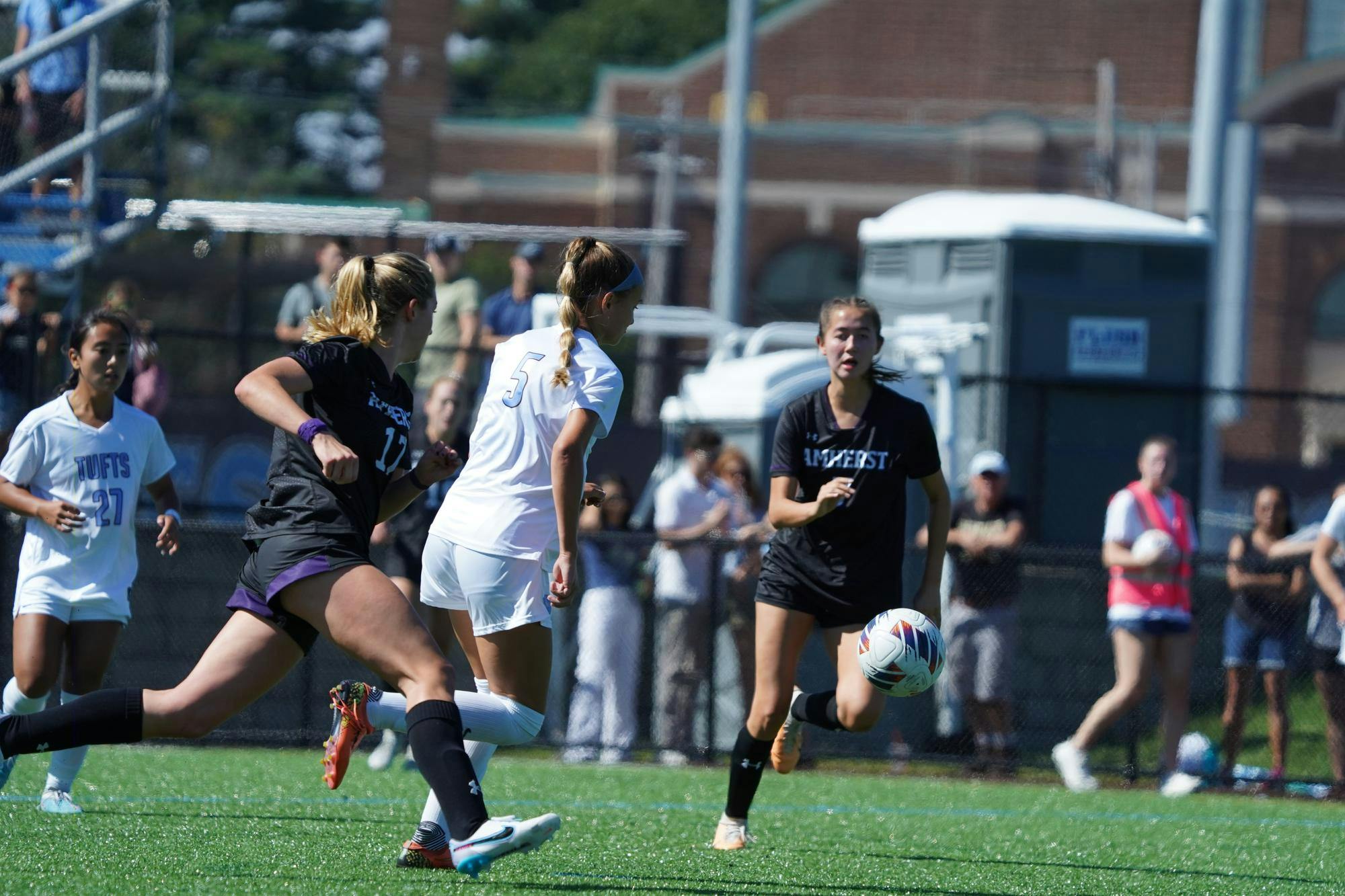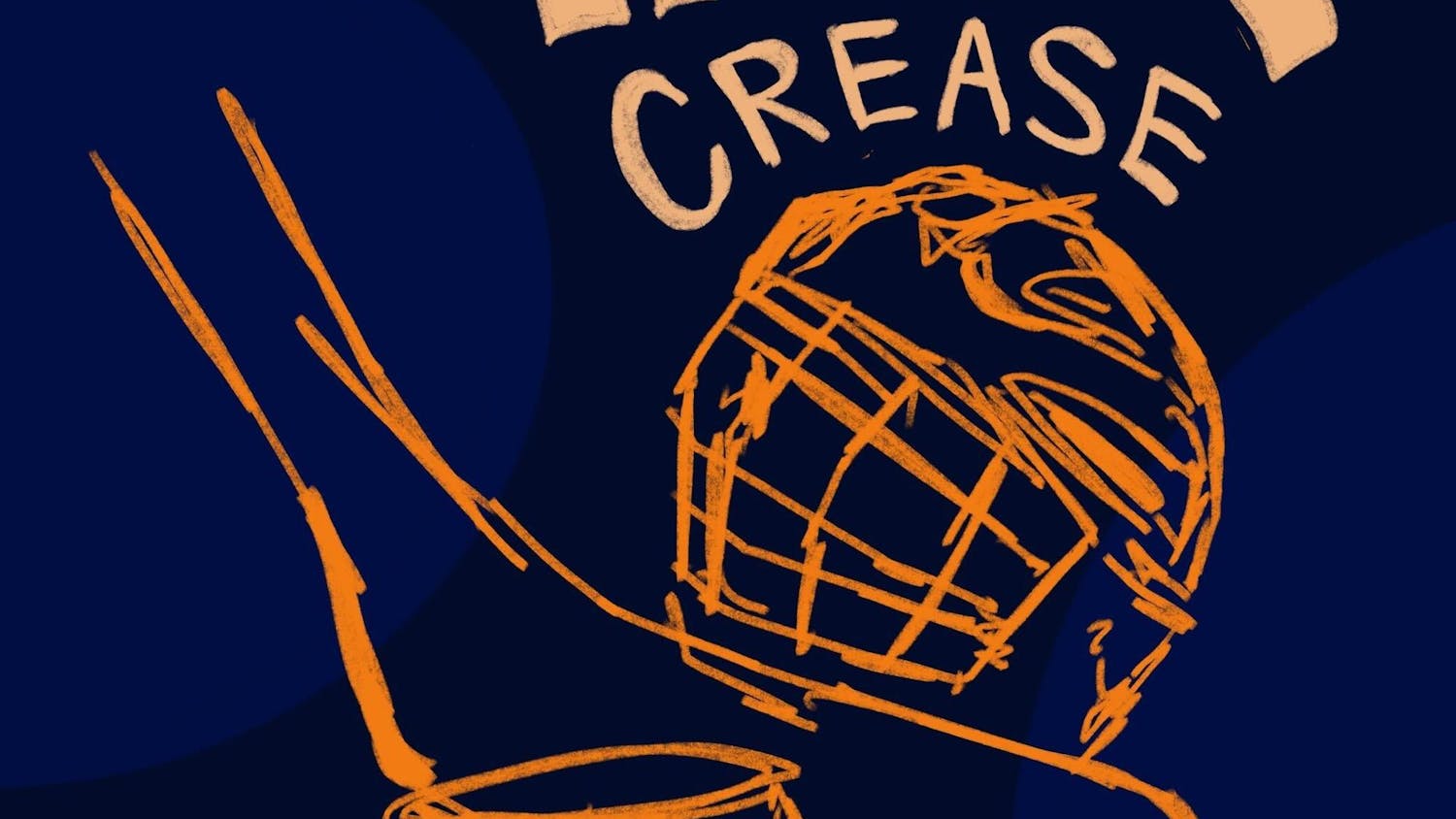After a 1–0 loss in overtime against Amherst in the NESCAC playoffs last year, the Tufts women’s soccer team continued their rivalry against them with a 4–1 loss on Sunday. The game was originally scheduled for Saturday, but because of weather concerns, was rescheduled to a nicer, but still windy, Sunday.
Tufts struggled against Amherst, the defending NESCAC champs. Sophomore defender Lena Sugrue explained that the Mammoths’ offensive speed made them difficult to play against.
“They have a lot of pace up top, especially their front three that's hard to deal with [as a defender],” Sugrue said.
The Jumbos and the Mammoths each made four shots in the first half, but only Amherst was able to follow through on one of these opportunities. Amherst scored 20 minutes in, yet despite their lead, both teams were evenly matched at halftime in terms of play.
The second half became a much faster moving game, with both teams getting more chances and shooting more. Three minutes into the second half, the Jumbos’ sophomore forward Elsi Aires got the ball near midfield, sprinted down the field and scored with a strong kick into the top left corner, tying the game 1–1. After that, though, the Mammoths began to dominate the scoreboard. Ten minutes after Aires’ goal, Amherst junior forward Patience Kum and first-year midfielder Katie Pederson both scored within six minutes of each other, bringing the game to 3–1. Then, with less than ten seconds left, Amherst scored one last goal to make the final score 4–1.
Despite the score, the Jumbos spent a lot of time in front of the Amherst goal.
“We had a good amount of chances against [Amherst],” Sugrue said. “I just think we weren’t able to convert on those. I had a header on goal that hit the frame; small chances like those make or break the game ... we definitely were able to get behind the defense quite a bit.”
Though the final score of the game may not reflect this sentiment, the number of shots the Jumbos were putting up does. Tufts had ten shots in the second half as compared to Amherst’s seven. Sugrue, specifically, had four shots.
Freshman midfielder Reese Birch had one of those shots after she stole the ball from Amherst.
“I’d say that no matter the score we played well. I think 4–1 wasn’t reflective of the team's talent comparatively,” Birch said.
Tufts has the skill to get past the defense of a team like Amherst, but the question remains of whether or not they are able to score.
The Jumbos had an especially tough start to the season, having played and lost to the two teams who were in the NESCAC championship game last year. Sugrue is hopeful that upcoming games will be easier.
“Coming out and playing Amherst, defending [NESCAC] champs, and Wesleyan, [who was] in that NESCAC final last year, we [were] coming out and playing some strong teams at the start,” Sugrue said. “But there’s nothing to say we can’t be where we want to be at the end of the season.”
NESCAC games are more competitive, because playoff seedings are determined based on the standings. Currently, Tufts’ record is 1–2 in conference, and 3–2 overall. There are also many highly skilled teams in the NESCAC, with three teams ranking in the top 25 nationally for Division III, meaning in-conference play is typically more challenging.
“[In the NESCAC], you don’t play a bad team,” Birch said. “Every game is a battle. The intensity is definitely higher in the NESCAC.”
On Tuesday, the Jumbos were able to reverse their negative momentum from the past two games with a decisive 3–0 victory against the Massachusetts Institute of Technology. This weekend, the Jumbos have two conference games coming up, and look to continue their winning streak. They will play Hamilton College on Saturday and Trinity College on Sunday.






